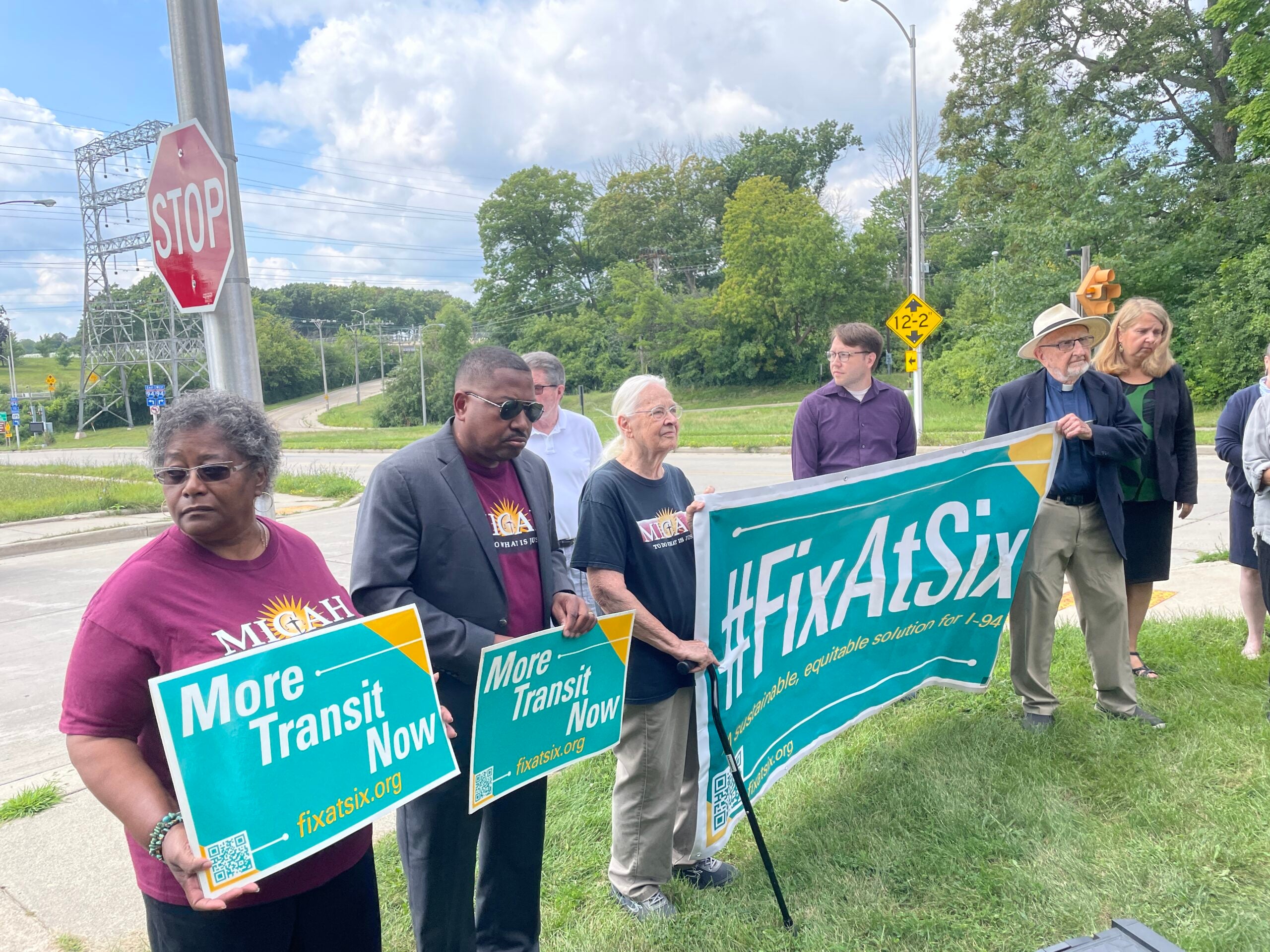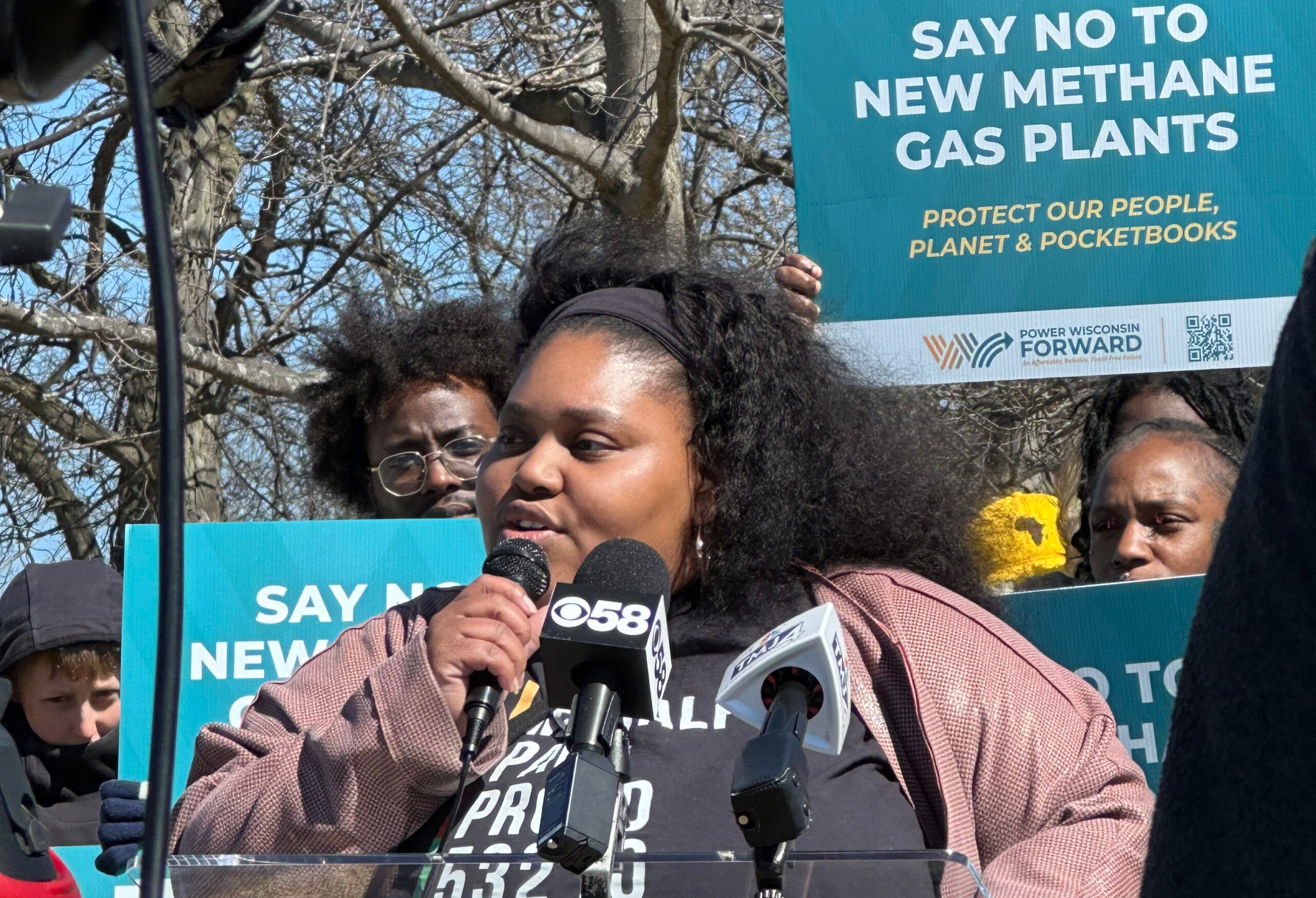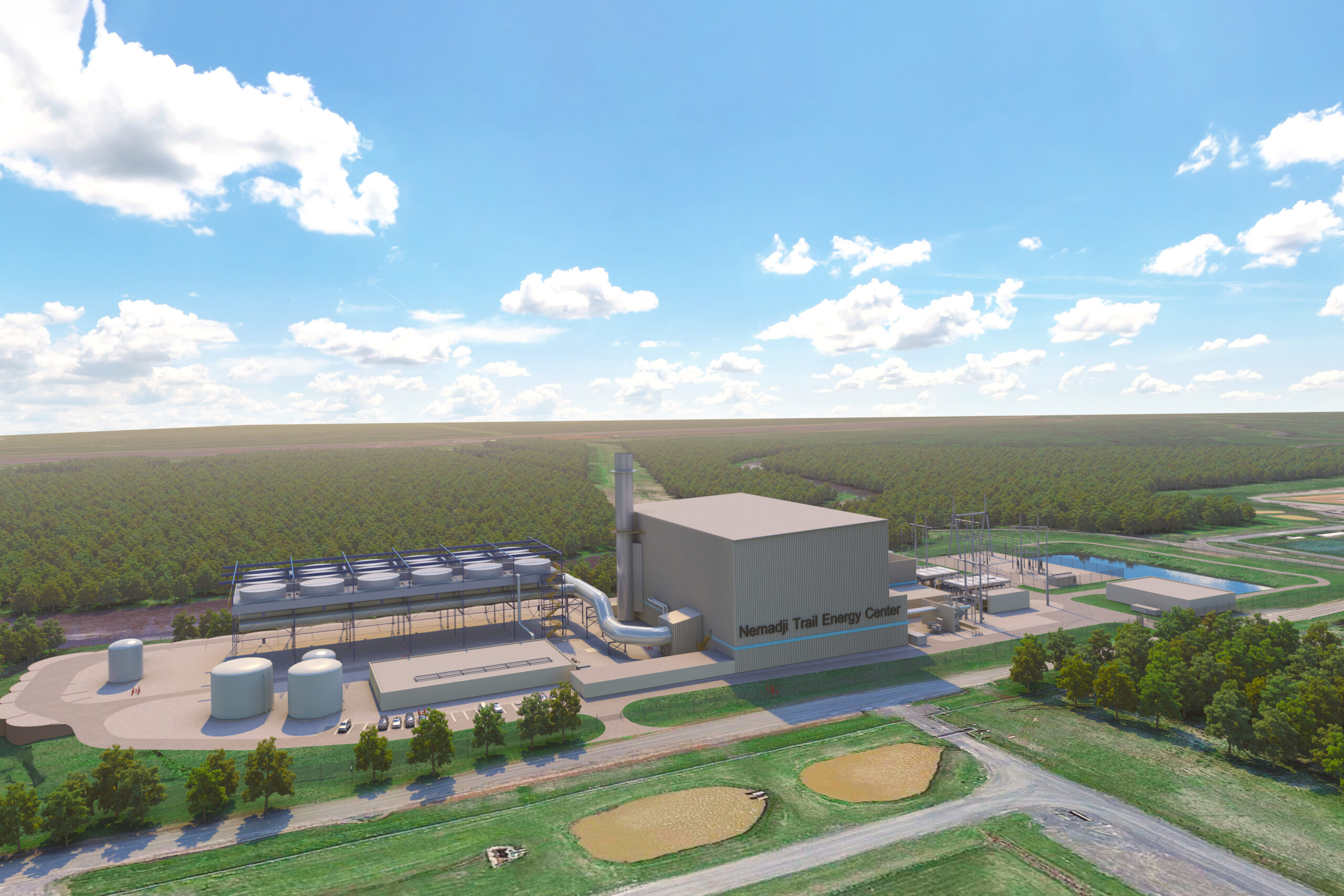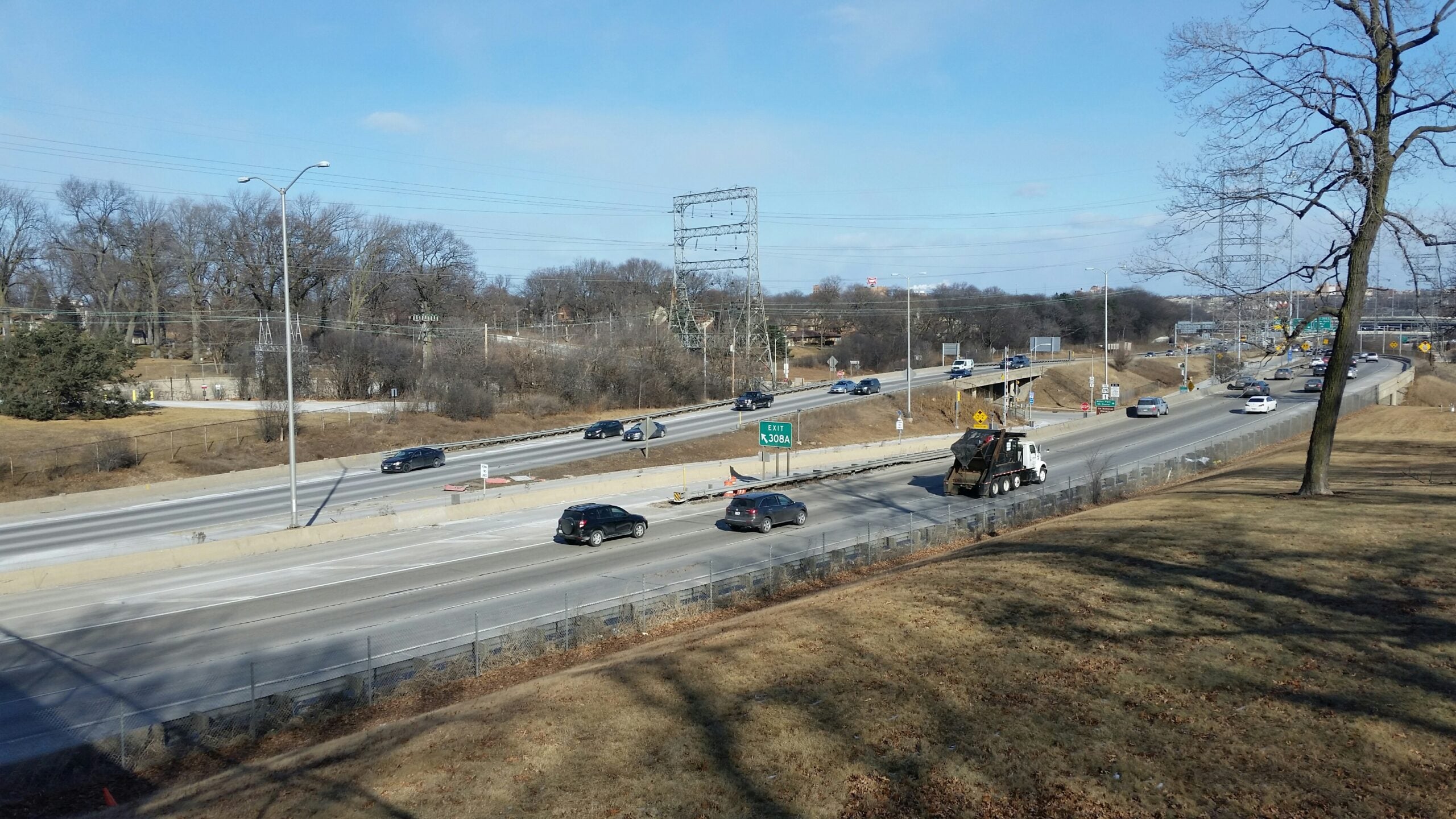A coalition of activist groups filed a federal lawsuit Monday against multiple state and federal highway agencies over their plans to expand a portion of Interstate 94 in Milwaukee from six to eight lanes.
The coalition consists of Milwaukee Inner-City Congregations Allied for Hope, or MICAH, Milwaukee Riverkeeper, the Sierra Club’s Wisconsin chapter and 1000 Friends of Wisconsin.
They claim the highway agencies failed to consider all reasonable alternatives to expansion. They also charge the agencies with inadequately analyzing — and not mitigating — the expansion’s environmental, social and health effects on local communities.
Stay informed on the latest news
Sign up for WPR’s email newsletter.
They are represented by legal nonprofits Midwest Environmental Advocates and Legal Action of Wisconsin, as well as Milwaukee attorney Dennis Grzezinski. The plaintiffs filed the suit in the Eastern District of Wisconsin.
The U.S. Department of Transportation, Federal Highway Administration and Wisconsin DOT plan to expand I-94 from six to eight lanes between 16th and 70th Streets in Milwaukee, and to rebuild the Stadium Interchange in a “diverging diamond” format. They also aim to make a number of safety improvements along the stretch of highway, including the elimination of left-hand exits. The project is estimated to cost about $1.75 billion.
Construction is scheduled to begin in 2025.
A spokesman for the Wisconsin Department of Transportation said they could not comment on pending litigation.
Community groups take issue with project’s impact on transportation equity
At a Monday press conference attended by representatives of the coalition, Midwest Environmental Advocates senior staff attorney Dan Gustafson said that the agencies used “incomplete and highly selective environmental analysis” to justify selecting the expansion plan over an alternative plan championed by the coalition. That plan is called “Fix at Six.”
“Many community members who testified at public hearings during the state’s environmental review process urged the state to consider the ‘Fix at Six’ alternative, a plan that would fix the safety and operational concerns of the corridor without expanding the highway,” Gustafson said.
The Fix at Six alternative also calls for more investment in public transit.
Richard Shaw, President of MICAH and pastor of St. Matthew CME Church on Milwaukee’s north side, argued the alternative plan would have been better for residents of neighborhoods adjacent to the highway.
“When we know that to those who travel from the suburbs to downtown, that it may benefit them to get to downtown, to work as well as entertainment. But what about those who live in the city? What about those whose homes, and families, and lives will be impacted by this expansion?” asked Shaw.
One of those city residents is Adele Nance, a member of MICAH who uses public transit to travel to her job at St. Luke’s Hospital. She spoke on the importance of public transit in her neighborhood.
“Right now, it’s like a desert in my neighborhood, because all the money supply is going to this program that’s for the highway, but I need in my community, because that I’m a worker. I had to leave a job because I didn’t have the transportation to get back and forth to work. I’m a person who likes to be on time. I don’t like to be late for work. So I had to give up a client who depended on me for her care,” Nance said.
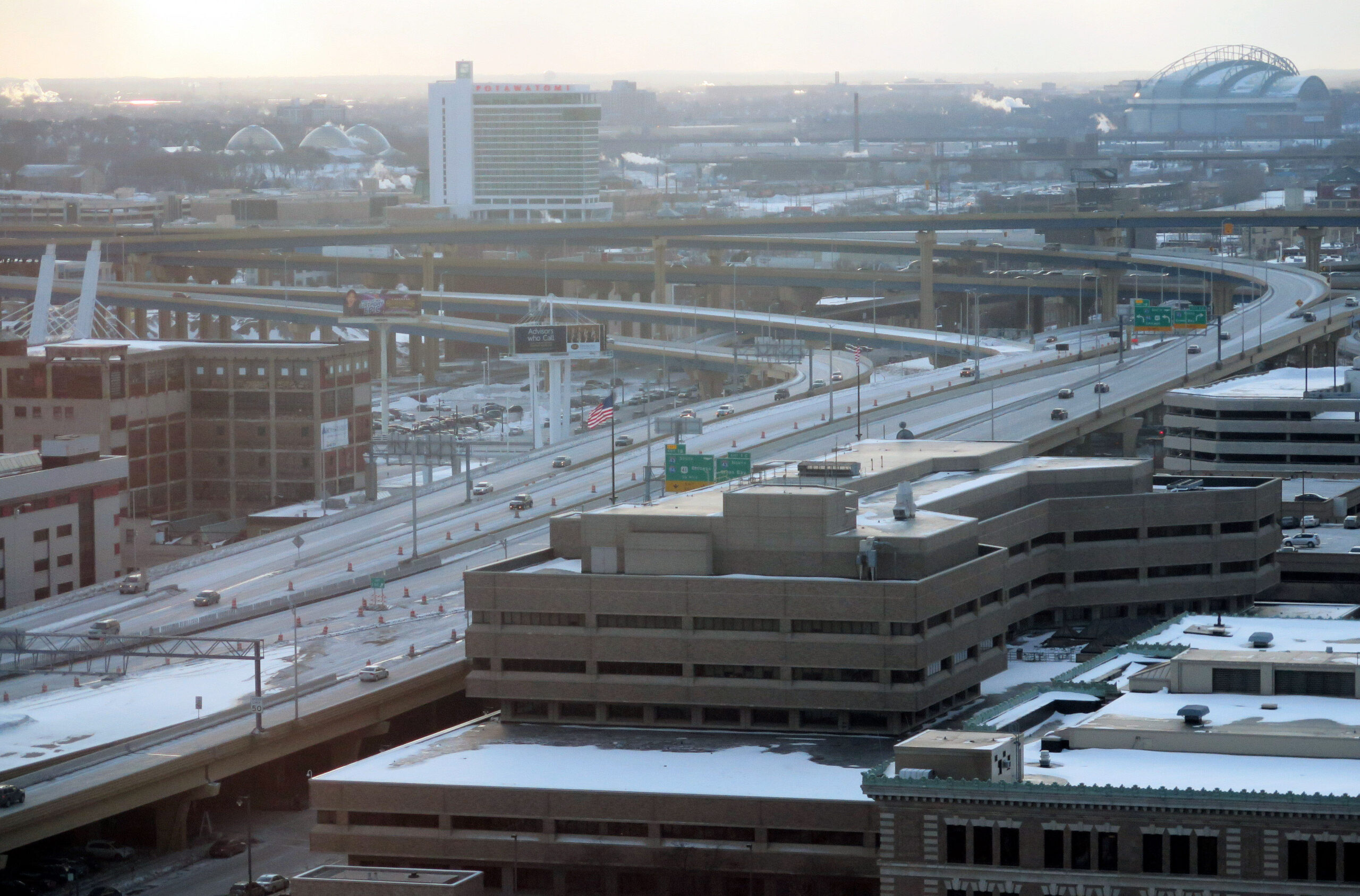
Project could harm neighborhoods along highway
The press conference was held at Mitchell Boulevard Park in the Valley Park neighborhood, also known as Piggsville. According to UWM’s “Encyclopedia of Milwaukee” website, Piggsville is the only residential neighborhood in the otherwise industrial Menomonee Valley. It is surrounded on three sides by I-94, the Stadium Freeway and the Wisconsin Avenue viaduct.
Leland Pan is on the executive committee of the Sierra Club’s Wisconsin chapter and a former resident of Piggsville.
“The eight-lane proposal could result in 1000 metric tons of additional greenhouse gas emissions compared to a six-lane fix. While climate change is something that hurts all of us, the immediate impact on health, such as asthma, will be felt most harshly by the diverse and working-class neighborhoods along I-94,” Pan said.
Pan claims the highway expansion would primarily benefit suburban residents who are more likely to be white and high-income compared to those living along I-94 in Milwaukee.
“This experience feels like reliving what I learned in college about urban planners in the mid-20th century who used highways to reinforce segregation and demolish hubs of Black and brown communities,” Pan added.
“Already, we know that the kids in the Valley, the kids in Story Park, the kids along the both sides will have to listen to the noise, have to have the dust, the water pollution, the air pollution, the noise pollution,” said Ann Bowie, a Piggsville resident and member of Friends of Valley Park and Gardens.
Environmental groups raise concerns
Environmental advocacy groups raised concerns about highway-related pollution.
“We’re very concerned about the cumulative impacts on our waterways from continued highway expansion. Our rivers are already impaired by a lot of pollutants including sediment, including road salt, and increasing the amount of paved acres of this highway by 27 acres, and increasing the highway right-of-way by 54 acres will increase these and other toxic pollutants running off into local rivers,” said Cheryl Nenn of Milwaukee Riverkeeper.
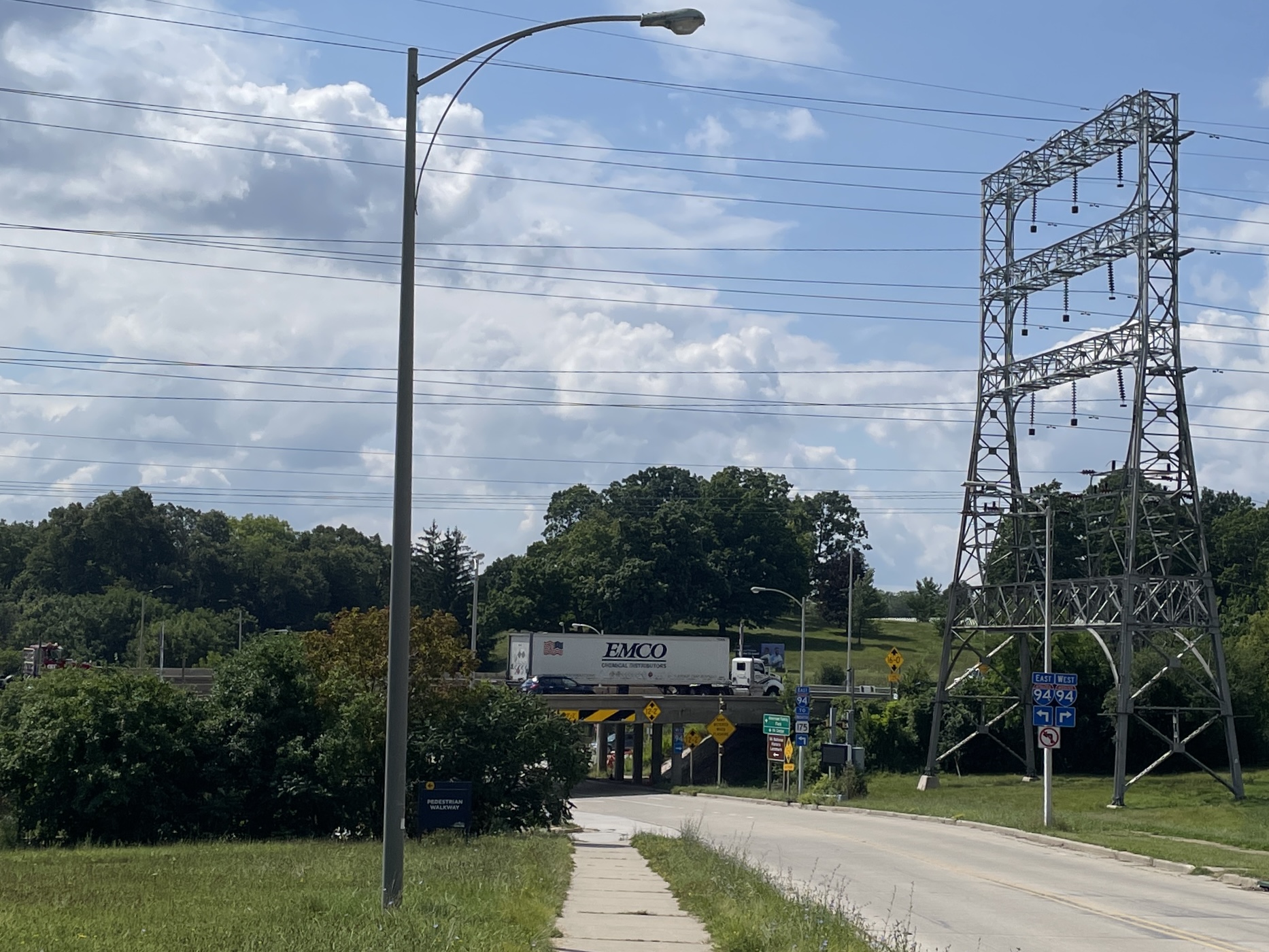
A long road to expansion
Plans to expand the stretch of highway have been in the works for over 10 years. A 2017 expansion plan by former Governor Scott Walker’s administration faced a similar lawsuit by MICAH, the Sierra Club’s Wisconsin chapter and the NAACP’s Milwaukee branch, which was dismissed after a funding pitfall scuppered Walker’s expansion. The Evers administration revived the project in 2020.
The Wisconsin Department of Transportation said it expects the expansion plan to improve safety on the highway and replace aging infrastructure, including bridges and overpasses.
A statement from the department said “public involvement and community engagement is a critical part of any WisDOT project, including the I-94 East-West project.”
According to the statement, department staff is continuing to work with community members and stakeholders to understand their concerns and minimize any impacts to the community.
In its “Purpose and Needs Summary” document, WisDOT says that crash rates on the stretch of road are twice as high as on similar urban freeways across Wisconsin, and that 63 percent of crashes are rear-end crashes, indicating a high level of congestion. The department expects traffic volumes to increase 5 to 6 percent between 2019 and 2050.
Wisconsin Public Radio, © Copyright 2025, Board of Regents of the University of Wisconsin System and Wisconsin Educational Communications Board.
